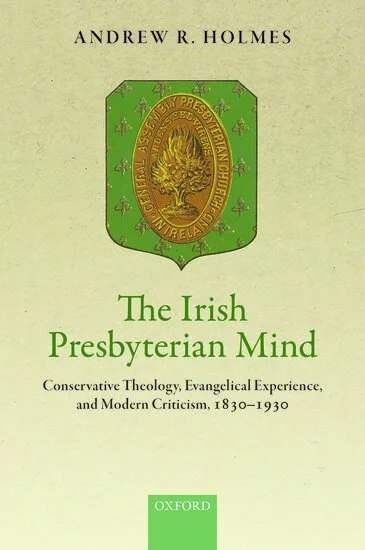In this month’s Banner of Truth magazine, Stephen has a review of a book by his MA supervisor, Andrew Holmes. Although obviously focused on the Irish situation, there are many links to Scotland. For example, Holmes notes that by 1919 one reviewer of a book on the atonement could claim it as evidence that ‘Calvinism is dead in North Ireland and South Scotland’.
How had such a situation come about? Perhaps not by the means we might expect. Holmes writes: ‘In Scotland, organised revivalism after 1859 was more important than liberal theology in weakening attachment to confessional principles such as election and the nature of the atonement’.
You can read the review below:
The Irish Presbyterian Mind: Conservative Theology, Evangelical Experience and Modern Criticism, 1830-1930
Andrew R. Holmes
Oxford University Press, 2018
279pp., hbk, £65 / $85
What was the greatest threat to confessional Calvinism in the nineteenth century? Many would say liberal theology – but in this compelling book Andrew Holmes identifies conservative evangelicalism as a greater danger. Particularly as a result of revivalism, the very definition of what it meant to be a conservative church changed – even as many stood firm against higher criticism.
Although the word ‘Irish’ in the title might put some off, one of the many strengths of the book is how the Irish mind is rooted in the global picture – whether the eventual impact of the Scottish believing critics, the links with Princeton and Charles Hodge, the influence of Keswick holiness, the importing of American revivalism or Gresham Machen’s influence on the new Evangelical Presbyterian Church.
One area where Holmes seeks to draw a distinction between the Irish situation and the American one is over Darwinian evolution. Although usually sympathetic to the confessional position, Holmes equates Creationism with American Fundamentalism. Many Irish Presbyterian ministers came to accept Darwinism, and their initial resistance is described as seeming in hindsight ‘irredeemably out of touch’.
A question Irish Presbyterians must face in every generation is whether their ultimate loyalty is to Christ or the Union. Holmes notes that the appointment of one ‘believing critic’ as theology professor was opposed because he was a supporter of Home Rule, not because he rejected ‘the incredible dogmas’ of plenary and verbal inspiration.
Holmes’ thesis is that Irish Presbyterianism remained conservative during the period. Certainly, the majority of members and elders remained conservative Christians. Yet many ministers and professors were clearly unorthodox, but easily survived heresy trials by appealing to the language of evangelical experience. ‘The problem for conservatives was that they were not uniformly confessional’, nor was the new denomination formed by those who left.
Throughout, the book highlights the elasticity of ‘conservative evangelicalism’ and the needed recovery of confessional categories.
You can read Stephen’s previous Banner reviews here.













